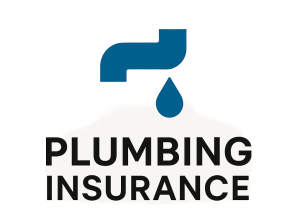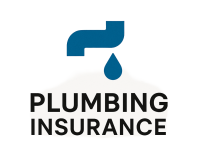Compliance Checklist for Insured Plumbing Contractors
Presented by Plumbing Insurance
When you’re running a plumbing business, staying compliant isn’t just about following the rules—it’s about protecting your livelihood, your clients, and your reputation. As an insured plumbing contractor, having the right coverage and documentation is essential. At Plumbing Insurance, we’ve compiled a detailed Compliance Checklist for Insured Plumbing Contractors to help you stay on track and operate with confidence.
1. Maintain Proper Licensing and Certification
Before you can legally work as a plumber, you must be licensed according to your state’s regulations. Whether you’re offering services as a solo contractor or running a team, licensed and insured plumbers near me is what homeowners are searching for. Make sure your licensing is always up to date and visible on your business materials.
2. Secure the Right Business Insurance
Every plumbing contractor must carry business insurance tailored to their operations. This should include:
-
General liability insurance for plumbers: Covers third-party injuries, property damage, and legal costs.
-
Business insurance for plumbers: A broader policy that may include tools, vehicles, and employee coverage.
-
Plumbers liability insurance: Protects against lawsuits arising from accidental damage or injury.
-
Plumbers public liability insurance: Essential when working in public or residential spaces.
Getting accurate plumbers insurance quotes is the first step in choosing the right coverage for your business.
3. Understand Plumbers Insurance Costs
When evaluating your needs, consider the plumbers insurance cost as part of your overhead. It may vary based on:
-
Business size and revenue
-
Types of plumbing services offered (residential vs. commercial)
-
Claims history
-
Location (e.g., plumbers insurance California will differ from other states)
Getting multiple plumbers liability insurance quotes helps you compare coverage and pricing effectively.
4. Carry Residential Plumbing Insurance
If you work in homes, residential plumbing insurance is critical. Homeowners often require proof of plumbing insurance for homeowners before work begins. Ensure your coverage meets these standards, and be prepared to submit a plumbers report for insurance if needed after service or damage.
5. Keep Documentation Ready for Claims
Accidents happen—even to the best plumbers. When they do, having the right paperwork on hand, such as a plumbers report for insurance claim, helps speed up the process and minimize disruption. Make this a part of your job site routine.
6. Evaluate Your Insurance Provider Regularly
Not all providers are created equal. Take time to assess your current insurer. For example, Towergate Insurance is a well-known UK insurance provider offering options for plumbing professionals. When evaluating them or others, consider:
-
Claims process efficiency
-
Customer support
-
Customizable policy options for plumbing professionals
Compare this with plumbers and pipefitters insurance provider portal options if you need more flexibility and online accessibility.
7. Stay Compliant with California Laws (If Applicable)
If you operate in California, ensure your policy meets all plumbers insurance CA or insurance for plumbers CA regulations. California is known for strict compliance, so being proactive will keep your business running smoothly.
8. Review and Update Your Coverage Annually
Your business evolves, and so should your insurance. Whether you’re adding new services, expanding your team, or buying new equipment, you must update your insurance for plumbers accordingly. Schedule an annual review with your agent to adjust your plumbers insurance cover as needed.
FAQs – Plumbing Insurance Compliance
Q1: What is the average plumbers insurance cost?
A: The cost varies based on location, business size, and services offered. On average, plumbers insurance cost ranges from $500 to $2,000 annually for basic coverage.
Q2: Why do I need general liability insurance for plumbers?
A: It protects you from lawsuits and claims due to third-party property damage, bodily injury, or accidents that occur during your work.
Q3: Does residential plumbing insurance cover all homeowner work?
A: It typically does, but always confirm your plumbing insurance for homeowners meets the requirements of specific contracts or associations.
Q4: How do I get a plumbers report for insurance claim?
A: Most insurers provide a template. Keep detailed job notes and photos to make this process smoother.
Q5: Is business insurance for plumbers different from regular insurance?
A: Yes. Business insurance for plumbers is tailored to cover the unique risks of plumbing work, including tools, employee injuries, and service-related liabilities.
Q6: Can I get plumbers insurance quotes online?
A: Absolutely. Many companies, including Plumbing Insurance, offer fast, free plumbers insurance quotes through their websites.
Q7: What should I look for in plumbers liability insurance?
A: Look for coverage limits that match your business size, low deductibles, and options for legal defense costs.
Conclusion
Staying compliant isn’t optional—it’s the foundation of a reliable plumbing business. With the right mix of licensing, documentation, and the proper insurance for plumbers, you can avoid penalties, build client trust, and grow with confidence. At Plumbing Insurance, we make it easy to get the coverage you need at a price that fits your budget.
Ready to protect your plumbing business?
Contact Plumbing Insurance today to compare plumbers liability insurance quotes and create a custom policy that works for you.

